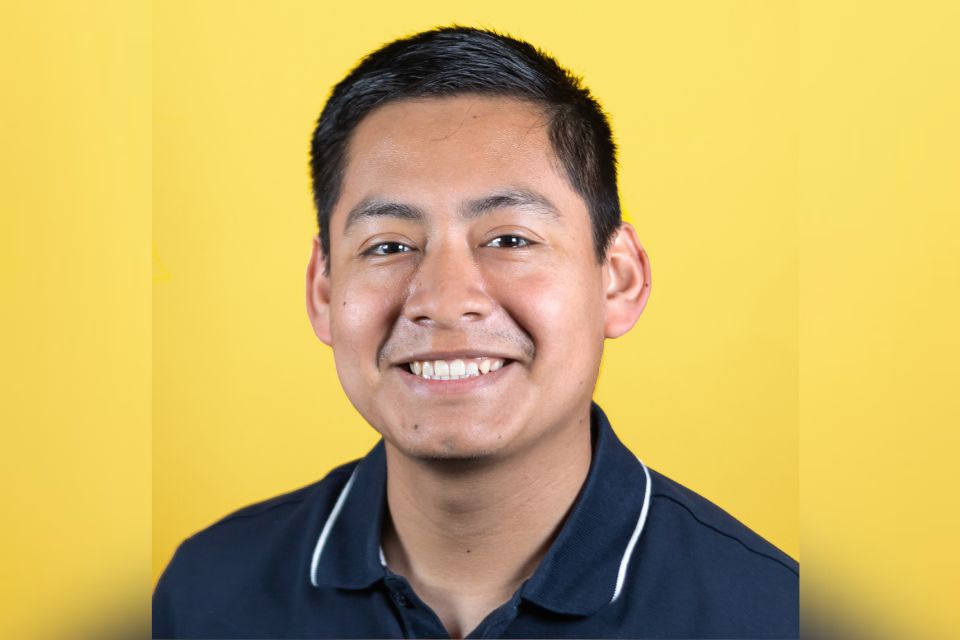
Literacy Pittsburgh’s nine Program Coordinators are spread across Allegheny and Beaver Counties and work directly with students and volunteer tutors in a specific geographic area. On November 7, Miguel Diaz, Program Coordinator for the Jefferson-Mon Valley area, presented a Tutor Talk about the day-to-day work of a Program Coordinator. We thought this might be interesting to you too!
Tutors mostly know coordinators as the people who match them with students and provide ongoing support. Yet Program Coordinators have a range of other responsibilities, such as managing relationships with students, tutors, and community partners and ensuring compliance with Pennsylvania Department of Adult Education standards.
First and foremost are the relationships with students. Coordinators now host local student orientations as well as complete the intake process for students in their specific area. Intake involves interviewing students to learn about their background and goals; it allows the coordinator to get a sense of what the learner wants to accomplish at Literacy Pittsburgh and gives insight into what kind of materials they will be assigned. This process also includes testing the student to determine their placement level. For English language learners this can be a straightforward oral test lasting 10-15 minutes. For a student pursuing a high school equivalency credential, it may mean scheduling an assessment test at the downtown center. Or, if the student lacks transportation or computer access the coordinator may drive to a local library to meet with the student to conduct the test. Program Coordinators then give the student an approximate timeline for when they can anticipate a match, which depends on the tutors who are available. Miguel encouraged tutors to invite friends to volunteer or let their coordinator know if they might be willing to take on an additional student – more volunteer help is always needed!
Similarly, building relationships with tutors is essential. The first step in that relationship is to match a tutor with a student. This involves working out a number of logistics, such as available days and times for both parties, their preference for online or in-person meetings, transportation issues, technology access, and keeping track of possible meeting sites and their hours of operation. Once a match is made, the coordinator meets with tutors prior to the first meeting with a student to go over the materials, answer questions, and reassure these new volunteers that they will be there to support them on an ongoing basis. Once they start meeting with students, tutors file weekly reports so coordinators can keep track of how things are going, note any goals the student may have accomplished, and problem-solve where necessary.
Literacy Pittsburgh relies on the support of other community organizations, so building these relationships is an important part of the job, too. This can include tabling at community events to recruit volunteers and inform potential students about our programs, delivering flyers to libraries to promote our classes and trainings, and working with other organizations to expand our footprint in the community. Last year, for instance, Miguel coordinated volunteer-led classes in conjunction with Casa San Jose, providing placement and ongoing assessment and data management for over 200 students in the Jefferson - Mon Valley area.
It's vital to monitor student progress to ensure they are getting closer to their goals. This data is also important to meet funder requirements and evaluate instructional effectiveness. The Pennsylvania Department of Adult Education requires testing after every 40-60 hours of instruction, and certain benchmarks must be met. Program coordinators must keep track of student hours, inform students about what is needed, and schedule assessment testing when appropriate. Data must be entered in two places: our internal database system and a database operated by the state.
Just like our students, coordinators are constantly learning. Testing requires ongoing test administrator certification as new versions of tests are released, as well as other professional development on adult education topics such as supporting learning differences.
When asked what his favorite and least favorite parts of his role were, Miguel noted that he found the relationships with students by far the best part of his job – he loves working with a complex range of students, learning about their backgrounds, their cultures, their goals, their accomplishments. Less positive are factors that are beyond a coordinator’s control but are inevitably part of adult education: when students face challenges that get in the way of their ability to continue meeting, such as health, transportation, childcare, or work issues.
Seeing his main role as an all-around problem solver, Miguel and all the other coordinators try their mightiest to refer students for support to head off these problems so everyone can focus on the main project at hand: creating better lives through learning.
Every day is different, and a coordinator may be engaged in a wide variety of tasks to ensure the students and tutors in their area achieve success.
Literacy Pittsburgh (formerly Greater Pittsburgh Literacy Council) helps create better lives through learning. Recognized as a national leader in adult and family literacy, Literacy Pittsburgh is the largest provider of adult basic education in Allegheny and Beaver Counties. Last year, Literacy Pittsburgh helped more than 4,000 individuals acquire the skills needed to reach their fullest potential in life and participate productively in their communities. Literacy Pittsburgh provides free, personalized instruction in workforce readiness, high school diploma test preparation, digital literacy, English language learning, math, reading, and family literacy through one-to-one and small class instruction. Founded in 1982, it serves local adults through numerous neighborhood locations and its Downtown Pittsburgh Learning Center.


